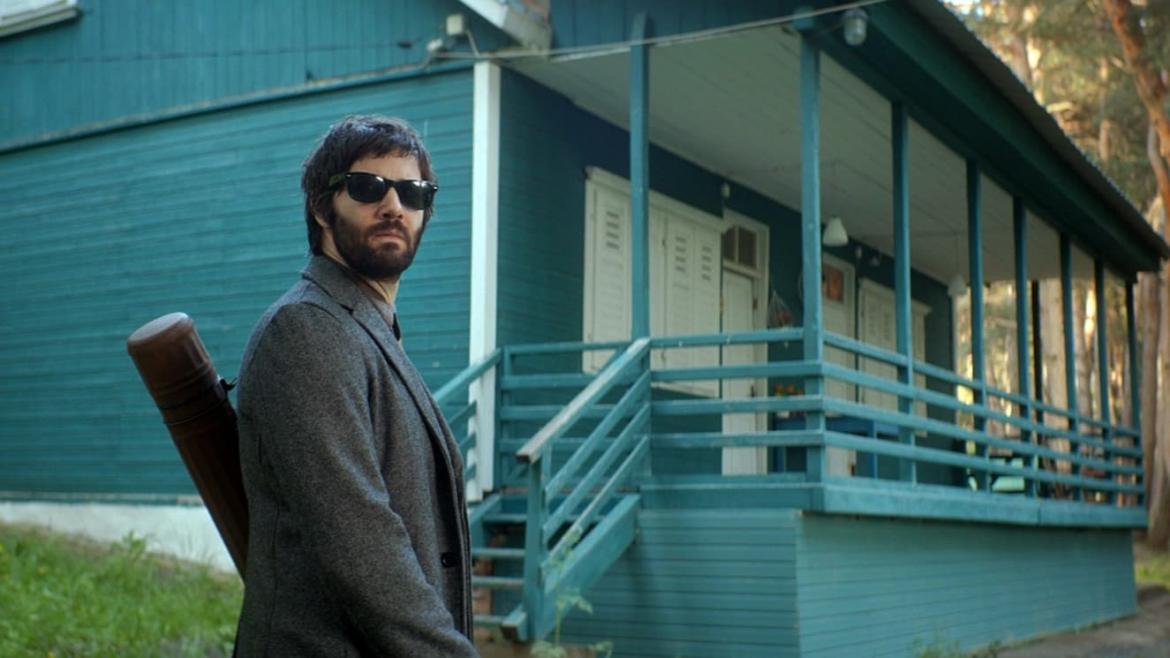
The Other Me (Movie Review)
Giga Agladze’s The Other Me is a dreamlike melodrama that wears its subtext on its sleeve. It opens to our main character speeding down a dimly lit road, much to his wife’s dismay, not concerned so much with the destination but more with how fast he can arrive. This foreshadowing is abruptly followed by the character, an artist and aspiring architect (Jim Sturgess), being diagnosed with a rapidly deteriorating eye condition that will inevitably leave him blind. What transpires is a fairy tale of sorts, as the artist and his wife (Antonia Campbell-Hughes) navigate his newfound disease which is set to lead both characters into an increasingly isolated world. He must face his inescapable loss of the one sense that gives him purpose and guidance, while his wife is confronted by the likelihood that the diagnosis means being trapped in an unhappy marriage.
As the title crawl begins, David Lynch’s involvement in the project stands out, his name appearing with an executive producer credit second to writer/director Giga Agladze. With this sort of agency, comparisons to Lynch’s work are as unavoidable as the main character’s confrontation with his own blindness. The story has a kernel of an interesting idea but never really flourishes due to the film’s purposeful ambiguity and obtuse approach. None of the character are given names and each one approaches their role with a seriousness that seems to undermine any sort of intended humor.
The artist is not without his own irony, often conflating his ability to blindly envision a time and place he has never been, all the while lamenting his unavoidable destiny with the darkness that shall soon envelop him. And it’s in this liminal space that the film feels focused on everything and nothing simultaneously. While this may make for an interesting thought exercise, it leaves the film feeling empty, shallow, and unfocused. Each scene seemingly designed for characters to spout off aphorisms about the existence of the self and its ability/inability to connect to the surrounding world. This especially feels true in scenes involving the artist’s mysterious new love interest.
The film’s strength lies in its imagery. Whether it’s suddenly shifting from color to black and white, or the characters changing from human to animal form (shoutout to the artist’s eye specialist who animorphs into a chicken holding a rifle). In fact, there seems to be stylistic homages to Lynch’s rabbit family from his Rabbits web series, which was later reused in Inland Empire. I particularly enjoy when films recreate paintings in their photography. Agladze’s use of this technique is especially nice as it helps reinforce the artist’s place in the world and relationship with the mysterious woman.
The set dressing is another highlight. Each room feels attuned to the character to whom it belongs. The couple’s apartment has high ceilings and minimal furniture as if the environment itself was their relationship, ever-receding. Even the walls become bare and lifeless as the marriage falls apart. Conversely, the mysterious woman’s cottage is cozy and tight while she looms large inside of it. Her walls littered with paintings and mirrors. It is warm and inviting, almost working in tandem with her desire for the artist to stay. My favorite set was the bar/club where the artist works. With its warm lighting, red curtains behind the stage as the jazz band performs, and neon glow of the exterior martini glass light, it evokes a similar importance that all music venues hold in anything that Lynch touches.
The Other Me attempts to articulate the difference between having sight and seeing something but is foiled by its own sleight of hand. The mixture of emphatic overacting and wooden/stilted performances only drag it down further. Even the interesting imagery and design cannot save its heavy-handed message. Furthermore, not even David Lynch’s name and borrowed stylings are enough to make me want to spend the necessary time in dissecting its themes and undercooked subplots.

